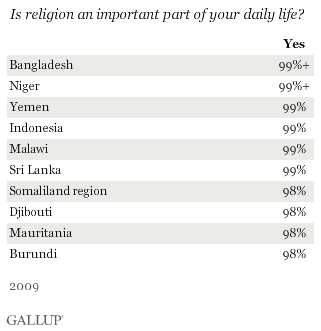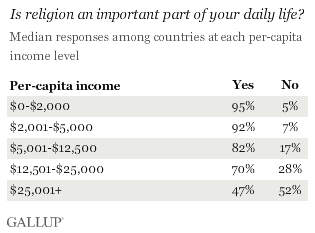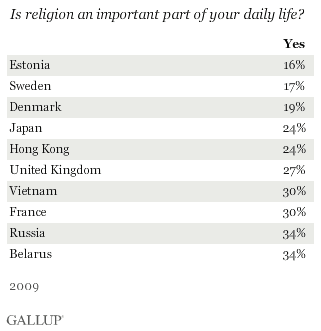|
|
Penganut agama kurang cerdik - Doalah dikurniakan akal
[Copy link]
|
|
|
Kurang IQ sebab kuat agama?
Ni anok harooom jadah poookimak babie makaliamput buta perot bangang bowdoh piang lakhanat musibat akai tiga kupang mana punya pendapat ni?
 |
|
|
|
|
|
|
|
|
|
|
|
pembuka tered yg bebal...
|
|
|
|
|
|
|
|
|
|
|
|
semestinya....................
|
|
|
|
|
|
|
|
|
|
|
|
ayaaaaaaaaa....nasib baik acong tada ugama..... |
|
|
|
|
|
|
|
|
|
|
|
Atheist pon pandai berdoa pada Elohim ye.
Very berakal lah sangattt  |
|
|
|
|
|
|
|
|
|
|
|
camnie kena mereput dlm tanah saja laa 
|
|
|
|
|
|
|
|
|
|
|
|
sebelum tu kena pastikan neraka tu wujud dulu...... 
|
|
|
|
|
|
|
|
|
|
|
|
ko nie contoh theist bangang 
|
|
|
|
|
|
|
|
|
|
|
|
Lantak lu la nak pasti ke nak buat tak tau ke. Engkau jugak yang meraung nanti
|
|
|
|
|
|
|
|
|
|
|
|
A 2008 survey headed by psychologist Richard Lynn found that average intelligence in 137 countries predicted atheism at statistically significant rates: the higher the population’s average IQ, the lower its religiosity rates and vice-versa.
kejap ye , dia highlight ini tapi tak kupas pun tang bab bab ni :
a) mere causation or just correlation - correlation tak menunjukkan causal relationship
b) IQ test mana dia guna? - norms mana ?
c) survey - okay survey tu macam mana dan kaedah apa
d) kalau correlation - ada org tak tertanya confounding factors ke
pada i - dia tak buat correlation ke IQ with GDP sesuatu negara ?
|
|
|
|
|
|
|
|
|
|
|
|
negara GDP tinggi juga mempunyai IQ lebih baik dan kebanyakan negara yg corot adalah menganut agama kau 
|
|
|
|
|
|
|
|
|
|
|
|
hahahahah bingo...
so u know what that means ....?
hahhahaahahahahhahah
so macam mana u nak tahu which one is actually correlated with which ?
GDP tinggi negara kaya so lebih banyak access to everything yg manfaat , literacy rate tinggi
IQ test - normalised ?? regional bias?
so kalau dah banyak potential confounders yg mana satu perkaitan yg betul ?
hahahahahahhahah
|
|
|
|
|
|
|
|
|
|
|
|
|
correlation or causation ? |
|
|
|
|
|
|
|
|
|
|
|
bingo abah ko....... negara GDP tinggi mempunyai % atheist yg lebih banyak berbanding negara percayakan tuhan bodoh
|
|
|
|
|
|
|
|
|
|
|
|
Religiosity Highest in World's Poorest Nations
by Steve Crabtree
United States is among the rich countries that buck the trend
WASHINGTON, D.C. -- Gallup surveys in 114 countries in 2009 show that religion continues to play an important role in many people's lives worldwide. The global median proportion of adults who say religion is an important part of their daily lives is 84%, unchanged from what Gallup has found in other years. In 10 countries and areas, at least 98% say religion is important in their daily lives.

Each of the most religious countries is relatively poor, with a per-capita GDP below $5,000. This reflects the strong relationship between a country's socioeconomic status and the religiosity of its residents. In the world's poorest countries -- those with average per-capita incomes of $2,000 or lower -- the median proportion who say religion is important in their daily lives is 95%. In contrast, the median for the richest countries -- those with average per-capita incomes higher than $25,000 -- is 47%.

The United States is one of the rich countries that bucks the trend. About two-thirds of Americans -- 65% -- say religion is important in their daily lives. Among high-income countries, only Italians, Greeks, Singaporeans, and residents of the oil-rich Persian Gulf states are more likely to say religion is important.
Most high-income countries are further down the religiosity spectrum. In 10 countries, no more than 34% of residents say religion is an important part of their daily lives. Six of those are developed countries in Europe and Asia with per-capita incomes greater than $25,000.
In three of the four lower income countries on the list -- Estonia, Russia, and Belarus -- the Soviet government restricted religious expression for decades until the U.S.S.R.'s collapse in 1991. The final country is Vietnam, where the government also has a history of limiting religious practice.

Implications
Social scientists have put forth numerous possible explanations for the relationship between the religiosity of a population and its average income level. One theory is that religion plays a more functional role in the world's poorest countries, helping many residents cope with a daily struggle to provide for themselves and their families. A previous Gallup analysis supports this idea, revealing that the relationship between religiosity and emotional wellbeing is stronger among poor countries than among those in the developed world.
For complete data sets or custom research from the more than 150 countries Gallup continually surveys, please contact [email protected] or call 202.715.3030.
Survey Methods
Results are based on telephone and face-to-face interviews conducted in 2009 with approximately 1,000 adults in each country. For results based on the total sample of national adults, one can say with 95% confidence that the maximum margin of sampling error ranges from ±5.3 percentage points in Lithuania to ±2.6 percentage points in India. In addition to sampling error, question wording and practical difficulties in conducting surveys can introduce error or bias into the findings of public opinion polls.

http://www.gallup.com/poll/14272 ... oorest-nations.aspx
|
|
|
|
|
|
|
|
|
|
|
|
hahaha ...u see...GDP pun correlate dengan low IQ
so is it religion ke GDP ? kekayaaan atau indeks ekonomi sesuatu negara
so how would you address , the two variables that seen as potential confounding factors?
the third problem variable
and look - u tak tahu pun ia correlation atau causation
benda ni kena rungkai dulu then baru selesai third variable problem
the fact that you tak leh kupas , hanya sekadar cut and paste dan highlight something - tak menunjukkan kepaad saya awak sintesis bahan dengan betul atau evaluate.
|
|
|
|
|
|
|
|
|
|
|
|
umat negara miskin mempunyai kepercayaan tahyul yg lebih tinggi 
|
|
|
|
|
|
|
|
|
|
|
|
causation ke correlation
kalau correlation - ia bukan causation dan kena address potential confounders
|
|
|
|
|
|
|
|
|
|
|
|
hamdalah........ amen 
|
This post contains more resources
You have to Login for download or view attachment(s). No Account? Register
x
|
|
|
|
|
|
|
|
|
| |
|